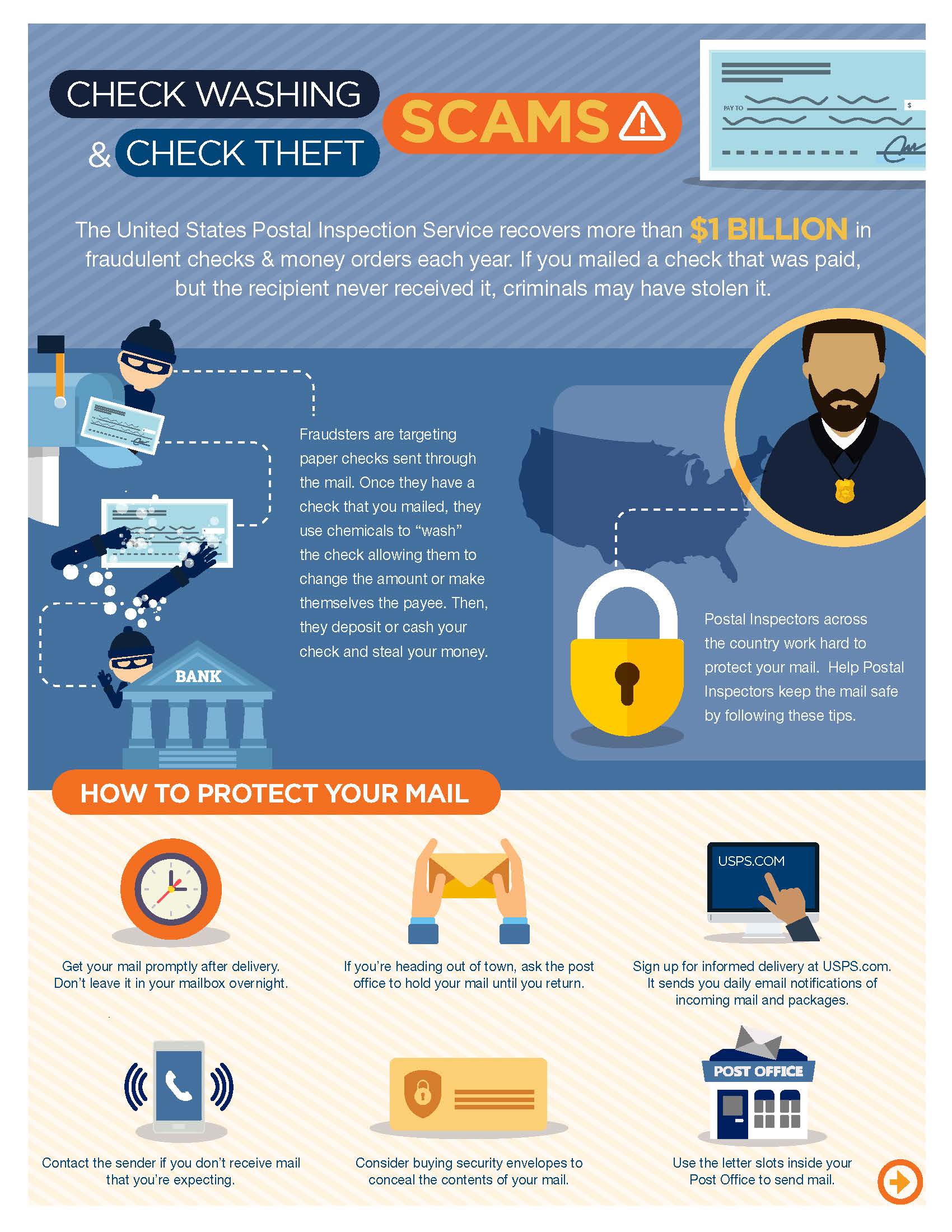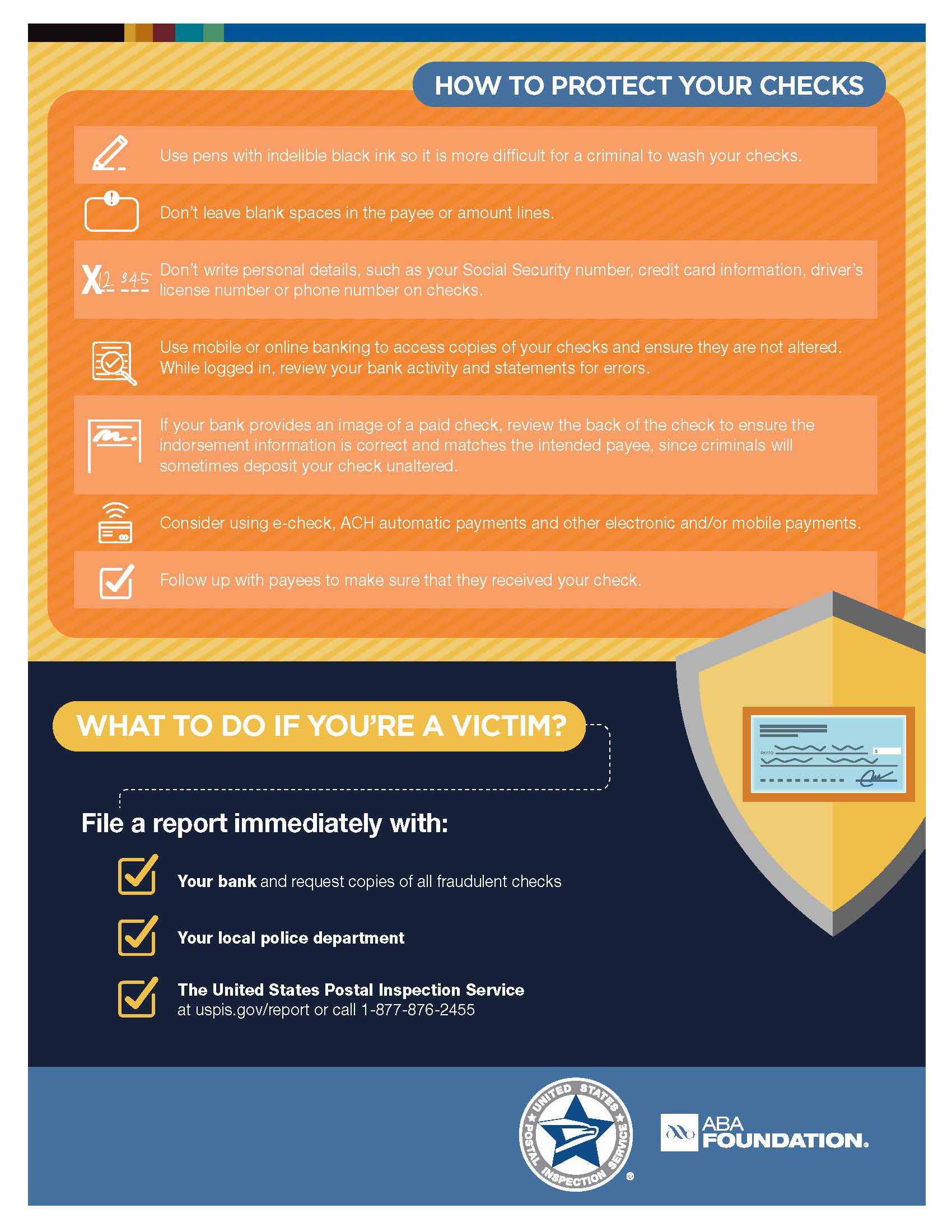Fraud Alert:
Check Washing & Check Theft
Checks sent through the mail may be vulnerable to fraud and theft. Learn how to help protect yourself.


Check Washing & Check Theft Scams
The United States Postal Inspection Service recovers more than $1 BILLION in fraudulent checks & money orders each year. If you mailed a check that was paid, but the recipient never received it, criminals may have stolen it.
Fraudsters are targeting paper checks sent through the mail. Once they have a check that you mailed, they use chemicals to “wash” the check allowing them to change the amount or make themselves the payee. Then, they deposit or cash your check and steal your money.
Postal Inspectors across the country work hard to protect your mail. Help Postal Inspectors keep the mail safe by following these tips.
How To Protect Your Mail
- Get your mail promptly after delivery. Don’t leave it in your mailbox overnight.
- If you’re heading out of town, ask the post office to hold your mail until you return.
- Sign up for informed delivery at USPS.com. It sends you daily email notifications of incoming mail and packages.
- Contact the sender if you don’t receive mail that you’re expecting.
- Consider buying security envelopes to conceal the contents of your mail.
- Use the letter slots inside your Post Office to send mail.
How To Protect Your Checks
- Use pens with indelible black ink so it is more difficult for a criminal to wash your checks.
- Don’t leave blank spaces in the payee or amount lines.
- Don’t write personal details, such as your Social Security number, credit card information, driver’s license number or phone number on checks.
- Use mobile or online banking to access copies of your checks and ensure they are not altered. While logged in, review your bank activity and statements for errors.
- If your bank provides an image of a paid check, review the back of the check to ensure the indorsement information is correct and matches the intended payee, since criminals will sometimes deposit your check unaltered.
- Consider using e-check, ACH automatic payments and other electronic and/or mobile payments.
- Follow up with payees to make sure that they received your check.
What To Do If You're A Victim?
- File a report immediately with:
- Your bank and request copies of all fraudulent checks
- Your local police department
- The United States Postal Inspection Service at uspis.gov/report or call 1-877-876-2455
Sources: United States Postal Inspection Service, ABA Foundation